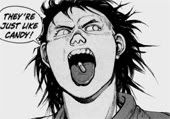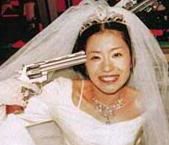

|
Korean Job Discussion Forums
"The Internet's Meeting Place for ESL/EFL Teachers from Around the World!"
|
| View previous topic :: View next topic |
| Author |
Message |
chilgok007
Joined: 28 May 2006
Location: Chilgok
|
 Posted: Wed Oct 11, 2006 5:34 am Post subject: Obsolete Hangul Posted: Wed Oct 11, 2006 5:34 am Post subject: Obsolete Hangul |
 |
|
Anybody know anything about how to pronounce the following "obsolete" Hangul?:
Consonants: ㅿㆁㆆㅱㅸㆄ
Simple vowel: ㆍ
Dipthongs: ㆎㆇㆈㆉㆊㆋㆌ
Consonant clusters: ㅦㅧㅨㅪㅬㅭㅮㅯㅰㅲㅳㅶㅷㅺㅻㅼㅽㅾㆂㆃ
Triple Consonants: ㅩㅫㅴㅵ
Why are they now obsolete? I'm curious in particular about the triple consonants. |
|
| Back to top |
|
 |
Zoidberg

Joined: 29 Mar 2006
Location: Somewhere too hot for my delicate marine constitution
|
 Posted: Wed Oct 11, 2006 3:07 pm Post subject: Posted: Wed Oct 11, 2006 3:07 pm Post subject: |
 |
|
| Quote: |
Anybody know anything about how to pronounce the following "obsolete" Hangul?:
Consonants: ㅿㆁㆆㅱㅸㆄ
Simple vowel: ㆍ
Dipthongs: ㆎㆇㆈㆉㆊㆋㆌ
Consonant clusters: ㅦㅧㅨㅪㅬㅭㅮㅯㅰㅲㅳㅶㅷㅺㅻㅼㅽㅾㆂㆃ
Triple Consonants: ㅩㅫㅴㅵ
Why are they now obsolete? I'm curious in particular about the triple consonants. |
Don't have any books on me, but I'll try from memory.
ㅿ=z
ㆁ=ng (the one without the little thing on top was original just zero consonant)
ㅸ=bilabial v
ㆄ=bilabial f (like japanese f)
ㆍ=something like the modern ᅥ. ᅥ originally was supposedly more like schwa.
ㆎㆇㆈㆉㆊㆋㆌ=all those combo vowels used to be actual diphthongs (vowel plus i), so eg. ㆌ would have been something like "you-ee" as one syllable, like ᅢ was something like "high" without the h.
ㅦㅧㅨㅪㅬㅭㅮㅯㅰㅲㅳㅶㅷㅺㅻㅼㅽㅾㆂㆃ&ㅩㅫㅴㅵ=some of these, like ㅺㅻㅼㅴㅵ, were pronounced like they look at the beginnings of words, eg. ddong was once pronounced "stong". Presumably this was possibly the case once at the ends of words too, but it seems they stopped being pronounced like that long before the clusters at the beginning of words stopped.
As to why they are obsolete, the reason is Korean is pronounced differently to how it was 500 years ago, and those characters are no longer needed as they represent sounds and combinations no longer existant in Modern Korean. |
|
| Back to top |
|
 |
Hater Depot
Joined: 29 Mar 2005
|
 Posted: Wed Oct 11, 2006 3:13 pm Post subject: Posted: Wed Oct 11, 2006 3:13 pm Post subject: |
 |
|
| The "simple vowel" ㆍ was originally pronounced ㅏ, I'm told. You can still occasionally see it, for example in a restaurant sign. |
|
| Back to top |
|
 |
Zoidberg

Joined: 29 Mar 2006
Location: Somewhere too hot for my delicate marine constitution
|
 Posted: Wed Oct 11, 2006 3:17 pm Post subject: Posted: Wed Oct 11, 2006 3:17 pm Post subject: |
 |
|
| Quote: |
| The "simple vowel" ㆍ was originally pronounced ㅏ, I'm told. You can still occasionally see it, for example in a restaurant sign. |
When it changed from it's original form it changed to ㅏ in initial syllables and ㅡ elsewhere in Seoul dialect. In some southern dialects it become ㅗ in certain words. The original vowel is still used in Jeju dialect. |
|
| Back to top |
|
 |
chilgok007
Joined: 28 May 2006
Location: Chilgok
|
 Posted: Thu Oct 12, 2006 2:17 am Post subject: Posted: Thu Oct 12, 2006 2:17 am Post subject: |
 |
|
Zoidberg, thanks for the info. Intersting stuff for sure. I wonder why they "evolved" away from the "z," "f," and "v" sounds. I can't think of too many modern languages (other than Korean) that lack all of these sounds (correct me if I'm wrong on this...I'm not a linguist).
1) May I ask, what books are you refering to?
2) Do you have any English sources?
3) Can you recommend any general (English) sources, scholarly or otherwise, on ancient Korean? |
|
| Back to top |
|
 |
SuperHero

Joined: 10 Dec 2003
Location: Superhero Hideout
|
 Posted: Thu Oct 12, 2006 2:38 am Post subject: Posted: Thu Oct 12, 2006 2:38 am Post subject: |
 |
|
here is one example
| Wikipedia wrote: |
| there are three consonants /f, v, z/ which exist in Sundanese as a result of borrowing words, but naturally they are not Sundanese consonants. |
|
|
| Back to top |
|
 |
Woland
Joined: 10 May 2006
Location: Seoul
|
 Posted: Thu Oct 12, 2006 7:03 am Post subject: Posted: Thu Oct 12, 2006 7:03 am Post subject: |
 |
|
| chilgok007 wrote: |
| Zoidberg, thanks for the info. Intersting stuff for sure. I wonder why they "evolved" away from the "z," "f," and "v" sounds. I can't think of too many modern languages (other than Korean) that lack all of these sounds (correct me if I'm wrong on this...I'm not a linguist). |
Well, as Sapir said (paraphrasing here), Languages change. Just so. There's generally not a why to it.
Curious question for those who know more about Korean historical linguistics than me - Did /z/ systematically become /s/? Loss of voicing would be a change that might be expected.
One interesting consequence of the loss of the voiced bilabial fricative (IPA symbol - beta) and /z/ is that voicing is redundant in Korean now. All obstruents (stops, affricates, and fricatives) in modern Korean are voiceless, while all sonorants (liquids, nasals, and glides) are voiced. |
|
| Back to top |
|
 |
out of context
Joined: 08 Jan 2006
Location: Daejeon
|
 Posted: Thu Oct 12, 2006 10:12 am Post subject: Posted: Thu Oct 12, 2006 10:12 am Post subject: |
 |
|
| Quote: |
| I can't think of too many modern languages (other than Korean) that lack all of these sounds. |
"f" is pretty widespread, but "v" and "z" are eminently disposable. Spanish doesn't use "v" or "z", for example. Out of other major languages, Hindi only uses them in loanwords, Japanese has only a bilabial fricative allophone of "h" and an affricate "dz", and Bengali and Indonesian don't use them at all.
| Quote: |
| Did /z/ systematically become /s/? |
From what I've seen, it seems that in most cases /z/ systemically became nothing at all: /mazam/ became 마음 (I don't know how to write old Korean here, but the vowel in /mazam/ is the dot, i.e., low back vowel), /mazal/ became 마을, /sazi/ became 사이, and the emphatic 야 used to be /za/. /v/ was similarly elided out of existence in many cases. There were cases of devoicing, such as /pazata/ > 부수다 and /azulahi/ > 아스라히, as well as oddities like /mazan/ > 마흔, /kazalaki/ > 까끄라기 and /pazaita/ > 비치다. |
|
| Back to top |
|
 |
billybrobby

Joined: 09 Dec 2004
|
 Posted: Thu Oct 12, 2006 11:48 am Post subject: Posted: Thu Oct 12, 2006 11:48 am Post subject: |
 |
|
Where do you guys learn all this stuff?
Also, I can say that as an English teacher you might wish that Korean had more sounds, but as a Korean learner you certainly wouldn't. It's got too many sounds as is.
Are any sounds new? Or has it just been a reductive process recently? |
|
| Back to top |
|
 |
Zoidberg

Joined: 29 Mar 2006
Location: Somewhere too hot for my delicate marine constitution
|
 Posted: Thu Oct 12, 2006 12:36 pm Post subject: Posted: Thu Oct 12, 2006 12:36 pm Post subject: |
 |
|
As out of context mentioned, most instances of z or v disappeared. The reason, most likely is that these sounds were rare and did not contribute much to distinguish many words, and were not missed if left out. Much the same as whe some english speaker leave h off words or pronounce th's as f's or d's.
| Quote: |
| Well, as Sapir said (paraphrasing here), Languages change. Just so. There's generally not a why to it. |
True, but there are some tendancies to move towards tidiness in a system. In the Korean examples the voiced fricatives like z and v were not very common, and were out of place in a system that generally does not use voicing to distinguish sounds. It could have gone another way, with voicing contrasts appearing for more consonants, as happened with old english. But then, such changes tend to cause imbalances elsewhere, causing the process to continue.
| Quote: |
| Are any sounds new? Or has it just been a reductive process recently? |
The main difference, in terms of new sounds are the reinforced or "double" consonants, like ᄈᄊᄁ etc, which for the most part formed from clusters like st or psk. and the change of diphthongs to simple vowels, eg ᅢ would have once sounded like the y in sky, and ᅬ like to oy in boy.
| Quote: |
1) May I ask, what books are you refering to?
2) Do you have any English sources?
3) Can you recommend any general (English) sources, scholarly or otherwise, on ancient Korean? |
The Korean Language by Iksop Lee and S. Robert Ramsey
The Korean Language by Ho-Min Sohn
Both these books are in English, and have small, but informative, sections on Old and Middle Korean, and on Modern Korean dialects. Sadly, there is not alot of material about either topic in English that is easy to find. Also, dealing with Old Korean, and Middle Korean before the invention of Hangul, is very hard, as most writing in those times was done in Classical Chinese, and the small amount of writing done in Korean was written with Chinese characters. |
|
| Back to top |
|
 |
chilgok007
Joined: 28 May 2006
Location: Chilgok
|
 Posted: Fri Oct 13, 2006 3:32 am Post subject: Posted: Fri Oct 13, 2006 3:32 am Post subject: |
 |
|
Just checked out those books at Amazon, and it seems my prayers have been answered! Is Lee and Ramsey a grammar book for language learners or a descriptive grammar?
Slightly related question: do we have any idea of how pre-hangul Korean was pronounced or do we just have to guess? I've actually studied a tiny bit of classical Chinese and I've always wondered how accurate the sounds are. The way I was taught, the words use modern Mandarin pronounciation, but the grammar is different. Is it the same with classical Korean? |
|
| Back to top |
|
 |
Zoidberg

Joined: 29 Mar 2006
Location: Somewhere too hot for my delicate marine constitution
|
 Posted: Fri Oct 13, 2006 4:30 am Post subject: Posted: Fri Oct 13, 2006 4:30 am Post subject: |
 |
|
| chilgok007 wrote: |
| Just checked out those books at Amazon, and it seems my prayers have been answered! Is Lee and Ramsey a grammar book for language learners or a descriptive grammar? |
It's more of a historical overview and a descriptive grammar, but it can be helpful for the learner as it can explain why there are exceptions and how different elements work together.
| chilgok007 wrote: |
| Slightly related question: do we have any idea of how pre-hangul Korean was pronounced or do we just have to guess? I've actually studied a tiny bit of classical Chinese and I've always wondered how accurate the sounds are. The way I was taught, the words use modern Mandarin pronounciation, but the grammar is different. Is it the same with classical Korean? |
Pre-Hangul Korean is a guess, just like Old and Middle Chinese, a best guess based on evidence from modern dialects and rhyming characters.
Classical Chinese was traditionally read pronouncing the characters as in one's native dialect but the grammar was Old Chinese.
There is no "Classical Korean" per se, it's status is similar to Old Japanese in that mainly women would write in Hangul, "serious" writing was done in Chinese. Pre-Hangul writing in Chinese characters was often Chinese with Korean grammar, or just plainly Chinese, with some characters read phonetically to stand in for Korean particles and verb endings. In the Shilla dynasty there was a type of writing that used characters just for their sounds, like a syllablary, to write pure Korean. But this was only used for poetry, and in later times the situation was more like what I mentioned before. |
|
| Back to top |
|
 |
gang ah jee

Joined: 14 Jan 2003
Location: city of paper
|
 Posted: Fri Oct 13, 2006 6:22 am Post subject: Posted: Fri Oct 13, 2006 6:22 am Post subject: |
 |
|
This is a really interesting thread. Thanks.
I regret not learning more about this while I was in Korea. |
|
| Back to top |
|
 |
Zoidberg

Joined: 29 Mar 2006
Location: Somewhere too hot for my delicate marine constitution
|
 Posted: Fri Oct 13, 2006 6:32 am Post subject: Posted: Fri Oct 13, 2006 6:32 am Post subject: |
 |
|
| I wish knowing this stuff had helped with my Korean learning when I was in Korea. Sadly I'm limited to uttering nonsense like "내가 원숭이에요?" and "이 코끼리는 얼마에요?" |
|
| Back to top |
|
 |
SuperHero

Joined: 10 Dec 2003
Location: Superhero Hideout
|
 Posted: Fri Oct 13, 2006 2:07 pm Post subject: Posted: Fri Oct 13, 2006 2:07 pm Post subject: |
 |
|
| Zoidberg wrote: |
| I wish knowing this stuff had helped with my Korean learning when I was in Korea. Sadly I'm limited to uttering nonsense like "내가 원숭이에요?" and "이 코끼리는 얼마에요?" |
You bought an elephant? How much was that? Since you are a monkey did they allow you to pay in bananas or did you have to pay in peanuts? |
|
| Back to top |
|
 |
|
|
You cannot post new topics in this forum
You cannot reply to topics in this forum
You cannot edit your posts in this forum
You cannot delete your posts in this forum
You cannot vote in polls in this forum
|
|

